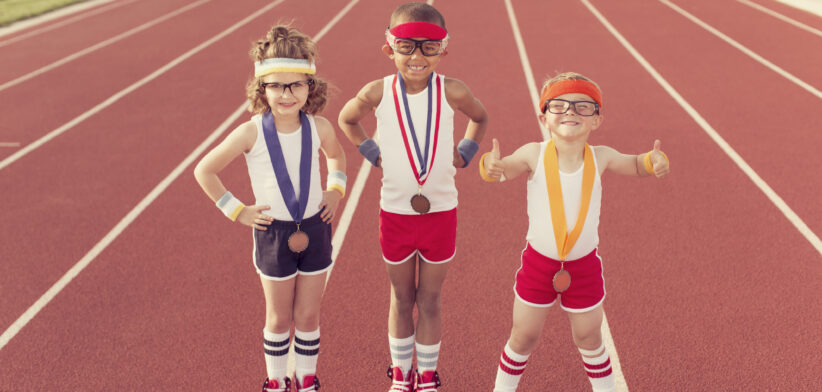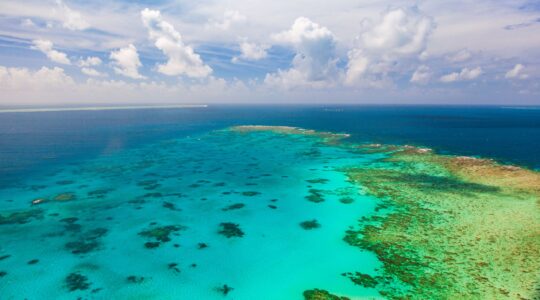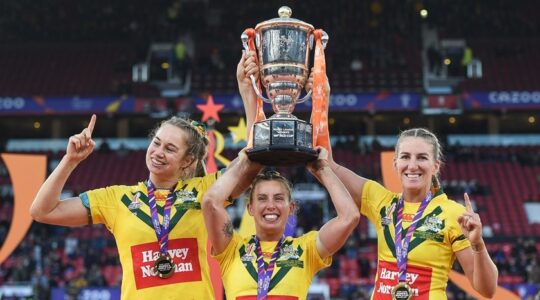What price gold? As Brisbane continues the long countdown to the 2032 Olympic and Paralympic Games, financial support and incentives for athletes is becoming a growing, and controversial, conversation.
World Athletics announced earlier this month that it would be carving off $2.4 million of its International Olympic Committee profit share funding to pay track and field competitors for gold medal wins.
Under the arrangement 48 athletic events would be eligible for $50,000 payments (with relay team payments split among the team).
This was considered a turning point for athlete incentives, coming 30 years after the Olympics effectively gave up the concept of amateur sport, clearing the way for the United States basketball “Dream Team” (including Michael Jordan and Magic Johnson) to play for their country.
The World Athletics move has been criticised by some other sporting groups as sporting bodies and government grapple with the right model to support athletes for training and reward results.
The Association of Summer Olympic International Federations released a statement on the weekend saying it was neither informed nor consulted in advance of the announcement.
“During the last days, ASOIF’s membership has expressed several concerns about World Athletics’ announcement.” the statement said.
“First, for many, this move undermines the values of Olympism and the uniqueness of the Games.
“One cannot and should not put a price on an Olympic gold medal and, in many cases, Olympic medallists indirectly benefit from commercial endorsements. This disregards the less privileged athletes lower down the final standings.”
“Second, not all sports could or should replicate this move, even if they wanted to. Paying prize money in a multi-sport environment goes against the principle of solidarity, reinforces a different set of values across the sports and opens up many questions.”
An analysis by Forbes Magazine revealed a huge disparity between countries on the amounts paid for Gold Medal winners.
The 2022 Winter Olympics analysis showed Hong Kong paid a whopping $642,000 for a gold medal win, followed by Turkey $383,000, Malaysia $238,000 and Italy $201,000. The United States came in at a relatively paltry 11th at $37,500 and Australia was nowhere on the chart.
For Italy it was a particularly costly Olympics with $2.7 million being paid to its 17 gold medalists.
After the 2020 Summer Games, the Australian Olympic Committee announced that about $1.5 million would be distributed to athletes under the Medal Incentives Funding program
Under the program $20,000 is paid for gold medals, $15,000 for silver and $10,000 for bronze.
The AOC has distributed more than $10 million in medal incentive funding directly to athletes to support their Olympic campaigns since Rio 2016, with the $1.485 million the first payments to the Paris 2024 squad.
In December, the Australian Government, through the Australian Sports Commission (ASC), announced it was investing an additional $2 million to financially support athletes in pursuit of gold medals.
The announcement lifted the maximum support an athlete could receive under the Direct Athlete Income Support (DAIS) program to $37,500.
The Government said at the time that athletes identified as having the greatest potential to contribute to Australia winning medals at major international events would be eligible for an additional one-off payment on top of their annual DAIS grant allocation.
“The athletes we are supporting get little exposure outside of their pinnacle events every four years,” Australian Sport Commission CEO Kieren Perkins said at the time.
“Many are living at home and training full-time for little financial reward. This small boost will ensure their preparations and wellbeing are not negatively impacted by financial pressures,”
DAIS grants are supporting 850 athletes this financial year, with a total investment of $16.6 million.








